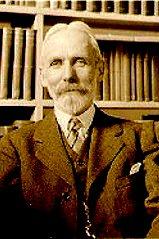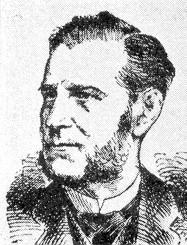Planning worship?
Check out our sister site, ZeteoSearch.org,
for 20+ additional resources related to your search.
- |
User Links
Person Results
Ralph Vaughan Williams

1872 - 1958 Arranger of "FOREST GREEN" in The United Methodist Hymnal Through his composing, conducting, collecting, editing, and teaching, Ralph Vaughan Williams (b. Down Ampney, Gloucestershire, England, October 12, 1872; d. Westminster, London, England, August 26, 1958) became the chief figure in the realm of English music and church music in the first half of the twentieth century. His education included instruction at the Royal College of Music in London and Trinity College, Cambridge, as well as additional studies in Berlin and Paris. During World War I he served in the army medical corps in France. Vaughan Williams taught music at the Royal College of Music (1920-1940), conducted the Bach Choir in London (1920-1927), and directed the Leith Hill Music Festival in Dorking (1905-1953). A major influence in his life was the English folk song. A knowledgeable collector of folk songs, he was also a member of the Folksong Society and a supporter of the English Folk Dance Society. Vaughan Williams wrote various articles and books, including National Music (1935), and composed numerous arrangements of folk songs; many of his compositions show the impact of folk rhythms and melodic modes. His original compositions cover nearly all musical genres, from orchestral symphonies and concertos to choral works, from songs to operas, and from chamber music to music for films. Vaughan Williams's church music includes anthems; choral-orchestral works, such as Magnificat (1932), Dona Nobis Pacem (1936), and Hodie (1953); and hymn tune settings for organ. But most important to the history of hymnody, he was music editor of the most influential British hymnal at the beginning of the twentieth century, The English Hymnal (1906), and coeditor (with Martin Shaw) of Songs of Praise (1925, 1931) and the Oxford Book of Carols (1928).
Bert Polman
Ralph Vaughan Williams
William Croft

1678 - 1727 Composer of "ST. MATTHEW" in The New Century Hymnal William Croft, Mus. Doc. was born in the year 1677 and received his musical education in the Chapel Royal, under Dr. Blow. In 1700 he was admitted a Gentleman Extraordinary of the Chapel Boyd; and in 1707, upon the decease of Jeremiah Clarke, he was appointed joint organist with his mentor, Dr. Blow. In 1709 he was elected organist of Westminster Abbey. This amiable man and excellent musician died in 1727, in the fiftieth year of his age. A very large number of Dr. Croft's compositions remain still in manuscript.
Cathedral chants of the XVI, XVII & XVIII centuries, ed. by Edward F. Rimbault, London: D. Almaine & Co., 1844
William Croft
Henry Hallam Tweedy

1868 - 1953 Person Name: Henry H. Tweedy Author of "O Spirit of the Living God" in The United Methodist Hymnal Born: August 5, 1868, Binghamton, New York.
Died: April 11, 1953, Brattleboro, Vermont.
Buried: Mountain View Cemetery, New Fairfield, Connecticut.
Tweedy attended Phillips Andover Academy, Yale University (BA & MA), Union Theological Seminary, and the University of Berlin. Ordained a Congregationalist minister in 1898, he pastored at Plymouth Church, Utica, New York (1892-1902), and South Church, Bridgeport, Connecticut (1902-09). He then became Professor of Homiletics at Yale Divinity School (1909-37). He taught liturgy, music, and the arts, and was interested in religious architecture. His works include:
The Minister and His Hymnal
Christian Worship and Praise, 1939
Lyrics:
"Eternal God, Whose Power Upholds"
"O Gracious Father of Mankind"
"O Spirit of the Living God"
--www.hymntime.com/tch
Henry Hallam Tweedy
Henry Hiles

1826 - 1904 Person Name: Henry Hiles, 1826-1904 Composer of "ST. LEONARD (HILES)" in Christian Worship Born: December 31, 1826, Shrewsbury, England.
Died: October 20, 1904, Worthing, England.
Hiles was educated at Oxford (BMus 1862, DMus 1867). He played the organ at Shrewsbury, as his brother’s deputy (1846); Bishopwearmouth (1847); St. Michael’s, Wood Street (1859); the Blind Asylum, Manchester (1859); Bowden (1861); and St. Paul’s, Manchester (1863-67). He lectured in harmony and composition at Owen’s College in Manchester (1867) and Victoria University (1879), and was Professor at the Manchester College of Music (1893). He also conducted musical societies in Lancashire and Yorkshire, and owned and edited the Quarterly Music Review (1885-88). He retired in 1904, moving to Pinner, near Harrow. His works include:
Twelve Tunes to Original or Favourite Hymns, 1867
Harmony of Sounds, three editions: 1871, 1872, 1879
Wesley Tune Book, 1872 (editor)
Grammar of Music, 1879
First Lessons in Singing (Manchester: Hime & Addison, 1881)
Part Writing or Modern Counterpoint (Novello: 1884)
Harmony or Counterpoint, 1889
Harmony, Choral or Counterpun
--www.hymntime.com/tch/
Henry Hiles
Jacob Kimball
1761 - 1826 Composer of "PLAINFIELD" in Hymnal Kimball, Jacob. (Topsfield, Massachusetts, February 15, 1761--July 24, 1826, Topsfield). He graduated from Harvard in 1780, studied law, taught school, and tried to make a living at various other occupations, with small success except in the field of music where he was regarded as an outstanding singer, teacher, and composer of his period. He edited Rural Harmony (Boston, 1793) which he followed with Essex Harmony (1800), and Essex Harmony, Part II (1802), which included the only tunes of his own composition which can now be identified as his, except those in the popular Village Harmony (1795) the later editions of which, down to 1821, were probably edited by him. There is evidence that he also wrote poetry, including a number of hymns, some of them perhaps anonymous ones, otherwise unknown, included in the above-mentioned song books. The one hymn which can be attributed to him with assurance is his excellent metrical version of Psalm 65 which Jeremy Belknap included in his Sacred Psalmody (1795), entitled "A New Version" and beginning "Thy praise, O God, in Zion waits." The only other hymn by an American author in Belknap's collection is Mather Byles' "When wild confusion wrecks the air," republished in 1760.
See: Jacob Kimball: A Pioneer American Musician, Essex Institution Historical Collections, XCII, no. 4.
--Henry Wilder Foote, DNAH Archives
Jacob Kimball
Carlos Colón
b. 1966 Person Name: Carlos Colón, b. 1966 Translator of "O Spirit of the Living God (Viviente Espíritu de nuestro Dios)" in Santo, Santo, Santo
Carlos Colón


 My Starred Hymns
My Starred Hymns


